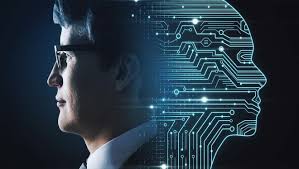Exploring the Frontier of AI-Driven Music Composition
The integration of Artificial Intelligence in music composition has sparked a vibrant debate about whether AI can outperform human musicians in crafting melodious and emotionally resonant music. This exploration delves into the capabilities of AI in music creation, comparing its outputs to human compositions in terms of creativity, complexity, and emotional depth.
The Mechanisms of AI in Music Composition
AI composes music by using algorithms that analyze vast amounts of musical data, learning patterns, styles, and structures from existing music. Tools like deep learning and neural networks enable AI systems to generate compositions in multiple genres, from classical to contemporary pop. For example, AI programs have been designed to create music by modeling the styles of great composers like Bach and Mozart, achieving compositions that some listeners find indistinguishable from human-created music in blind tests.
Speed and Volume of Production
AI's most significant advantage over humans in music composition is its ability to produce large volumes of music quickly. An AI can generate multiple pieces in a fraction of the time it takes a human composer to create one. For instance, an AI system developed by researchers could compose a new piece every few seconds, churning out hundreds of unique compositions in a single day.
Innovation and Creativity
Despite its proficiency in creating structurally sound music, AI still lags behind humans when it comes to true innovation and emotional depth. Human composers draw on personal experiences, emotions, and the influence of a diverse array of external factors that AI simply cannot replicate. The creative process for humans involves intuition and spontaneity, leading to innovative musical breakthroughs, which AI-generated music often lacks, tending instead to mimic existing styles rather than creating new ones.

Emotional Resonance
Music's emotional impact on listeners is where human composers distinctly outshine AI. Humans excel in crafting music that conveys deep emotions, from joy to sorrow, that resonate on a personal level with listeners. While AI can produce music that is technically perfect, it often fails to embed the subtle emotional cues that human composers naturally integrate into their works. This emotional connection is critical in defining the impact and success of musical compositions.
Collaborative Potential
One area where AI shows promise is in its role as a collaborator rather than a competitor to human musicians. AI can assist in the creative process by offering new possibilities in harmony, melody, and rhythm that a composer might not have considered. In this capacity, AI becomes a tool that enhances the creative freedom of human artists rather than replacing them.
Public and Critical Reception
The reception of AI-composed music by audiences and critics has been mixed. Some compositions have been praised for their complexity and beauty, while others have been critiqued as soulless or overly mechanical. The success of AI in music often depends on the listener's knowledge of the music's origin; perceptions tend to shift when listeners are aware that a piece was AI-composed.
The Verdict on AI vs. Human Composers
In conclusion, while AI can compose music that rivals human work in technical quality and is capable of producing vast quantities of music swiftly, it does not yet surpass human composers in areas of originality and emotional expression. Human composers possess an irreplaceable ability to infuse music with depth and feeling that AI has not achieved. The future of music composition likely lies in a partnership between AI or human creativity, where each brings their unique strengths to the table, transforming how music is created and experienced.
